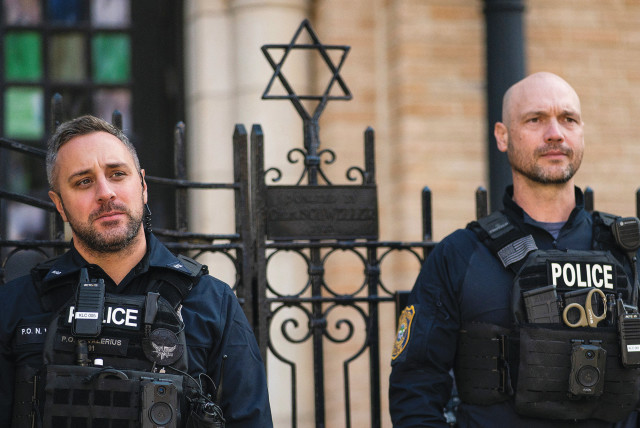 |
| From the Jerusalem Post: police protection for American synagogues needed after hundreds of threats. “US Jews suffer nearly 200 swatting, false bomb threats throughout weekend,” December 17, 2023 |
The past year has been a nightmare for Jewish people throughout the world. In Israel, the worst mass murder of Jews since World War II provoked the start of a brutal conflict. Hamas thugs acted out their most berserk fantasies, raping women, brutalizing children, mutilating corpses, and burning kibbutz villages, and taking over 200 hostages in a large area near the border of Gaza on October 7. Their stated goal was to start a war with Israel, and they achieved this goal dramatically. Most news stories focus on the destruction in Gaza, which grows in ghastly ways every day. But also, the unmentioned story is the destruction of Israeli welfare and economic well-being, despite a major unification of the Israeli people.
American left-wing fanatics began their response to this violence just after October 7 by praising the death and destruction wrecked by Hamas, with no sympathy for any Israeli victims. As the last 3 months have gone by, antisemitism in the US has been reawakened in an intensity and hostility not seen for decades. Left-wing and right-wing antisemitism may differ in some respects, but both sides are reviving old stereotypes and calumnies. Especially on university campuses, overt acts of antisemitism have vastly increased over pre-war levels. There have been many attacks on Jewish institutions, both physical and virtual, such as hoax bomb threats. It’s horrifying.
From CBS News in mid-December:
“Antisemitic incidents recorded by the ADL over the last two months included 40 reports of physical assault, 337 reports of vandalism, 749 reports of verbal or written harassment, and 905 rallies that involved ‘antisemitic rhetoric, expressions of support for terrorism against the state of Israel and/or anti-Zionism,’ the group said, noting that Jewish people across America have experienced an average of almost 34 antisemitic incidents each day since Oct. 7.” (source)
There is much other news -- the rise of antisemitism is nearly insignificant compared to the other problems of the world today, especially the looming threats to world peace and stability caused by accelerating climate change. Because this is a blog about Jewish concerns, I've made it a focus of this post. For my more general pessimistic look at the world, see my post on my other blog: "A New Year is Coming."
When I started this blog, my general feeling about Jewish life in America was extremely positive — celebrating heroes! The recent revelation of the latent antisemitism that’s evidently deep in our national spirit has very much disillusioned me and many other Americans. Of course I hope that 2024 will change the course of events that started in October, but my general view is very pessimistic.
However, that said, I do wish all my readers a Happy New Year for 2024!


